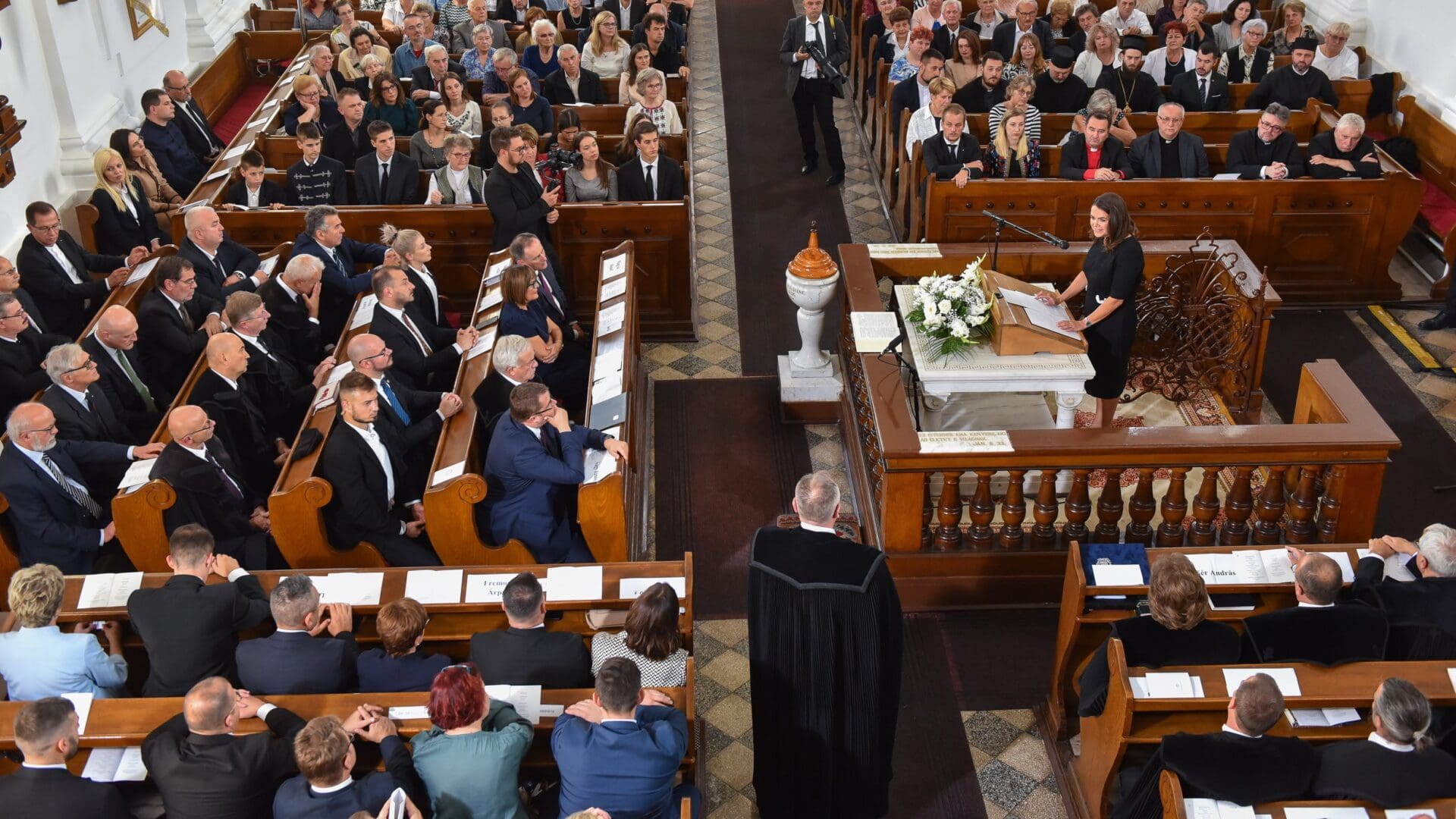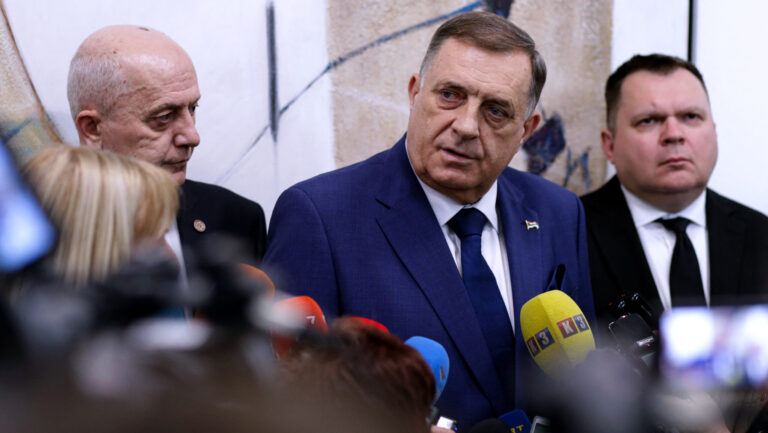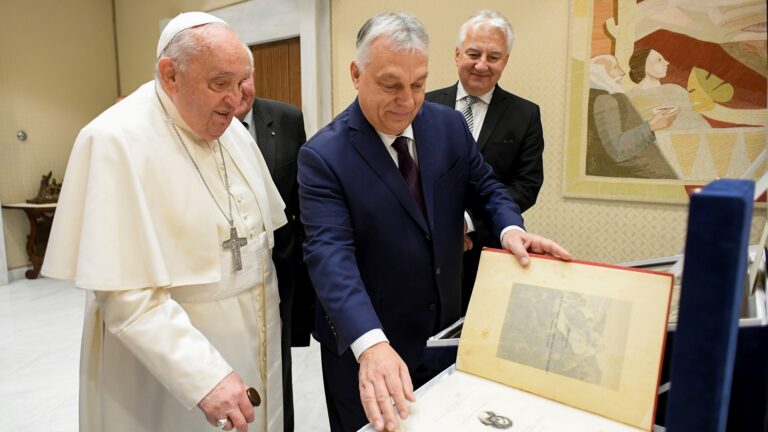‘We must stick together and support each other strongly, passing our strength to one another, as only those communities that are united will be able to survive and strengthen,’ President Katalin Novák emphasized in her remarks on Saturday in Bácsfeketehegy (Feketić), Serbia, where she participated in the consecration service of the new bishop of the Hungarian Reformed Church in Serbia, László Harangozó.
The President highlighted that Hungarians are facing difficult times, which is accompanied by the daily struggles of life. She reminded everyone that the recent global pandemic has just ended, and many had to leave their homes. Destructive ideologies have launched campaigns, targeting children; tensions persist in Kosovo, instability continues in the Western Balkans, war rages in Ukraine, and the situation in the Middle East is close to a war. Economic challenges further complicate the daily lives of families.
Novák added that in times like these, Christians turn to God for answers, awaiting responses on where the limits of violence and terror lie and what to do when the safety of their communities and families is in jeopardy. The answer to all these questions is to come together. The members of the community must connect so strongly that they cannot be torn apart.
‘Just as a mother clings to her children, the Motherland also clings to her children,
connecting Hungarian communities within and beyond our borders as if by an umbilical cord,’ she emphasized. The president concluded by noting that Hungarians now also have the opportunity to maintain friendly relations with Serbia, which contributes to this sense of togetherness.
State Secretary at the Prime Minister’s Office János Nagy read out a congratulatory letter from Viktor Orbán during the service. The prime minister sent the message that ‘those who believe are capable of doing and fighting beyond their strength.’ He highlighted the symbolic importance of the fact that ‘in places like yours in Vojvodina, Reformed churches have been not only houses of faith but also fortresses of Hungarian identity for a century. They provide guidance and offer spiritual support to the resilient Hungarian community that has already become the foundation of a more beautiful and hopeful future in Vojvodina.’ Orbán wrote it was symbolic that ‘they have elected a dedicated shepherd, an experienced leader who, as a teenager, aspired to be a missionary and, as a pastor, has successfully fulfilled various responsibilities, from church work to institutional leadership.’ Viktor Orbán wished the newly elected bishop a blessed service, ‘not only for the Reformed people of Délvidék* but also for the entire Hungarian community in Vojvodina.’ He concluded his letter with the Calvinist motto ‘Soli Deo gloria!’ (Glory to God alone).
László Harangozó, the newly elected and consecrated bishop of the Hungarian Reformed Church in Serbia and the Ministerial President of the Church’s Synod, asked the community to pray that the well-wishes expressed during the service become a reality, and that ‘this community, which wishes to live, can indeed live.’
*A historical term referring to varying areas in the southern part of pre-Trianon Hungary, today mostly synonymous with Vojvodina.
Related articles:
Sources: Hungarian Conservative/Sándor Palace/MTI








